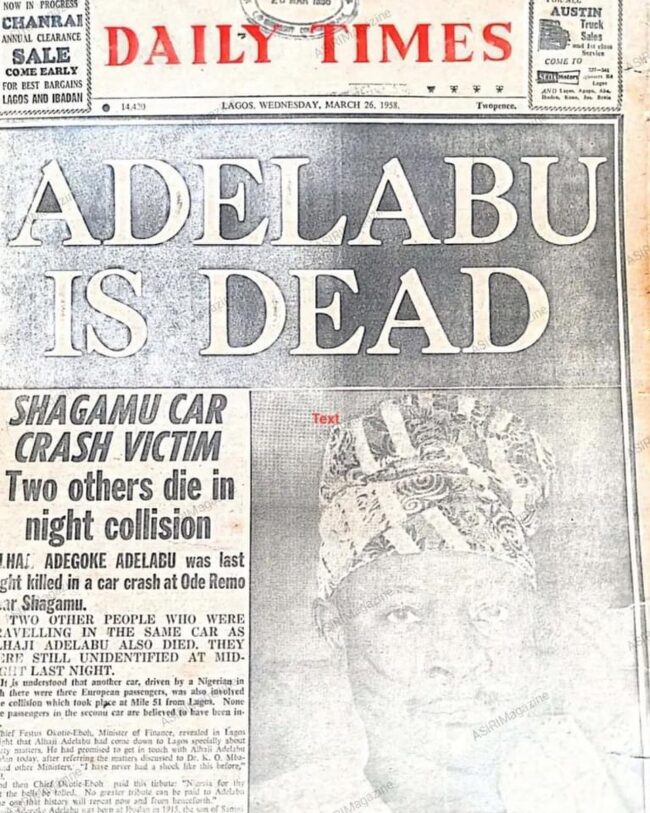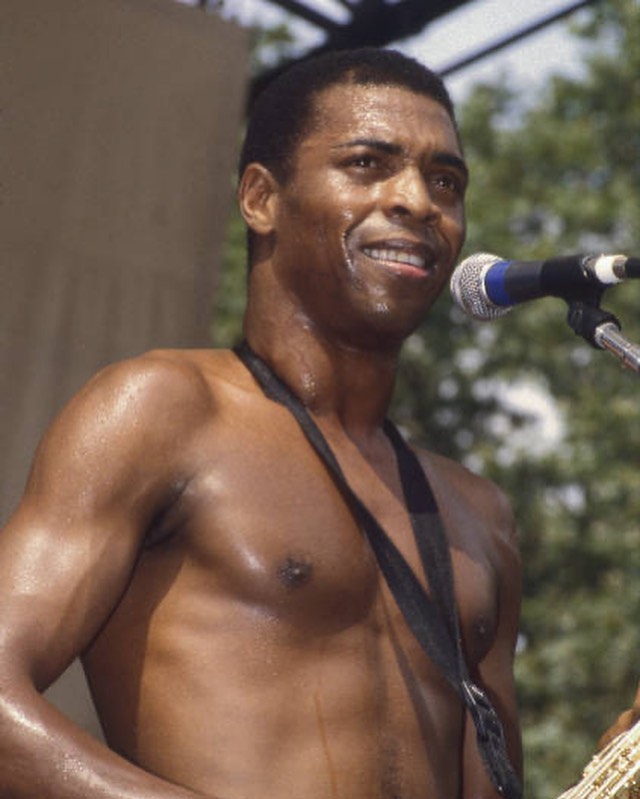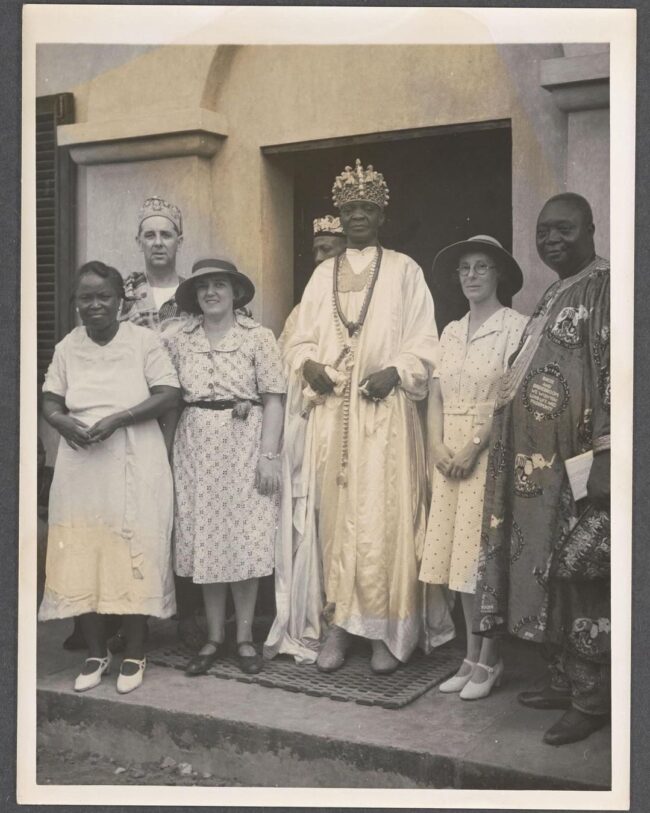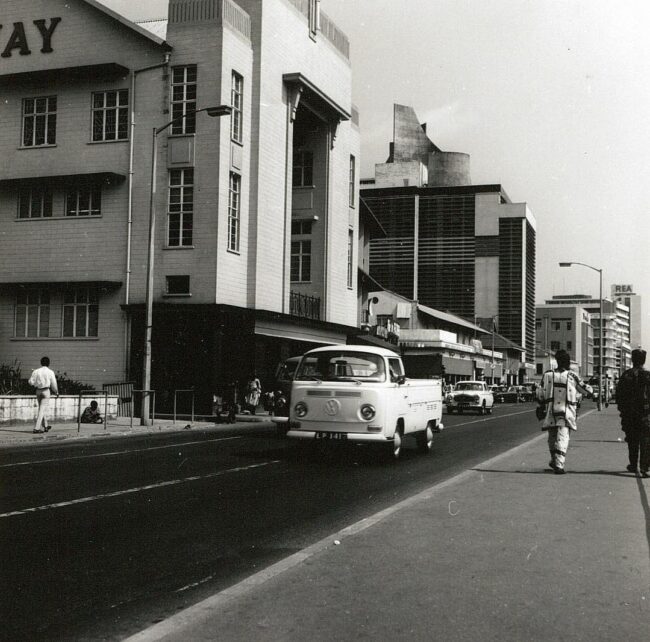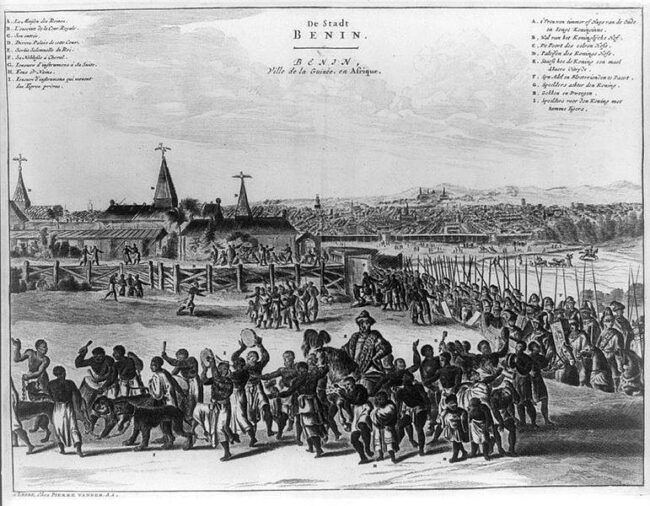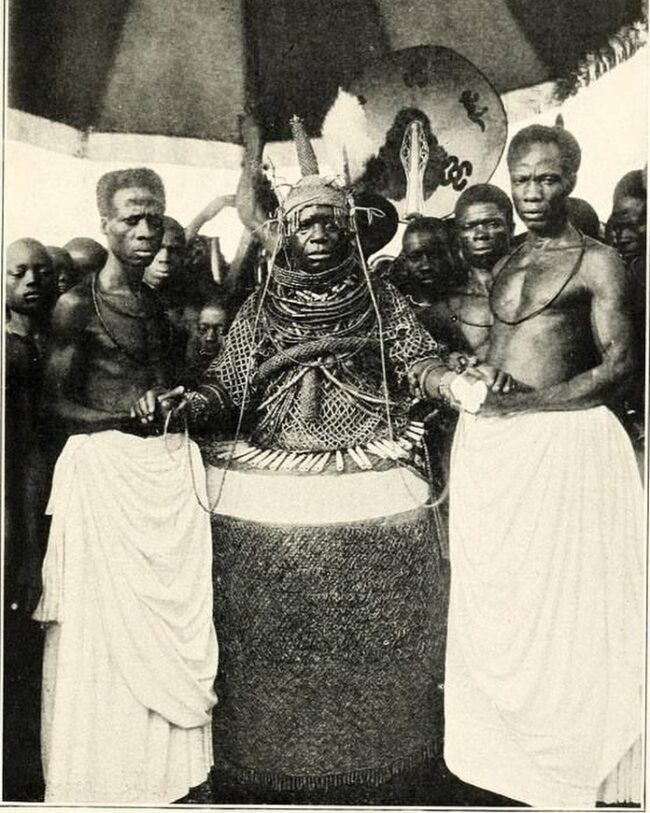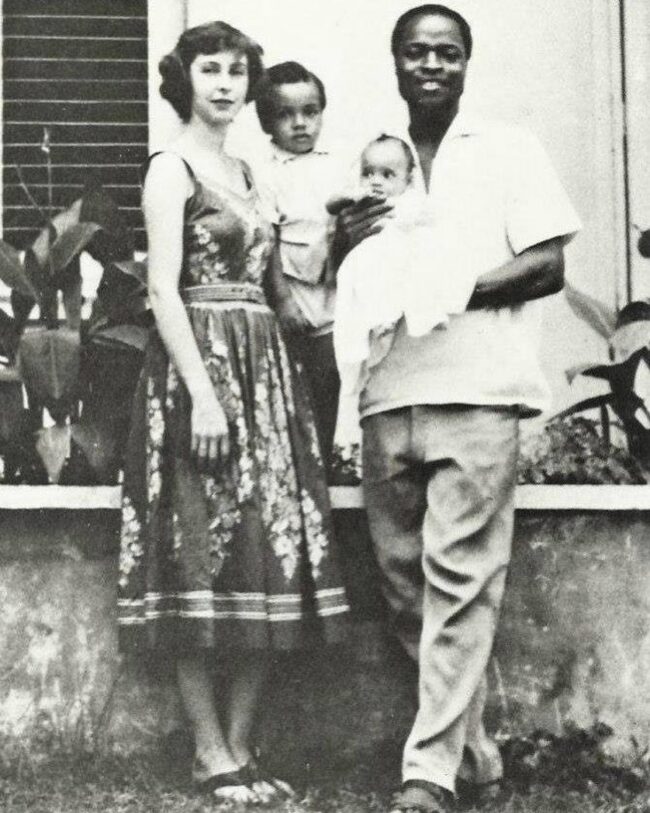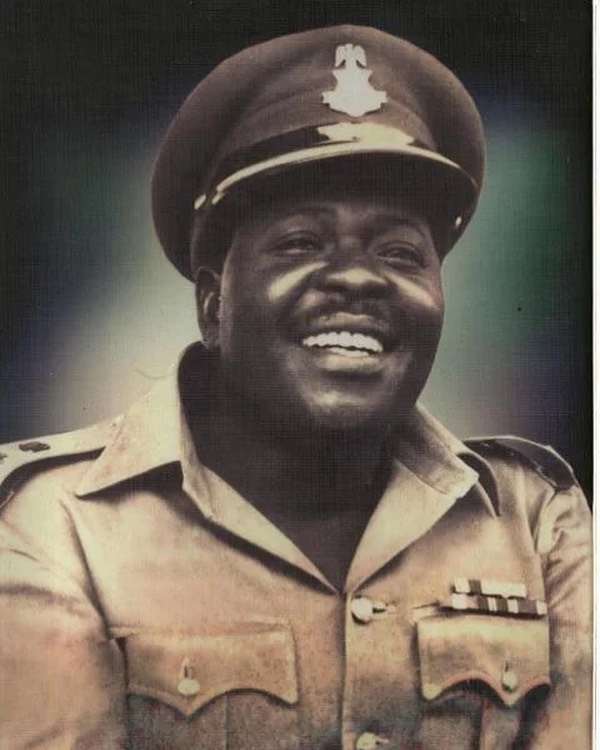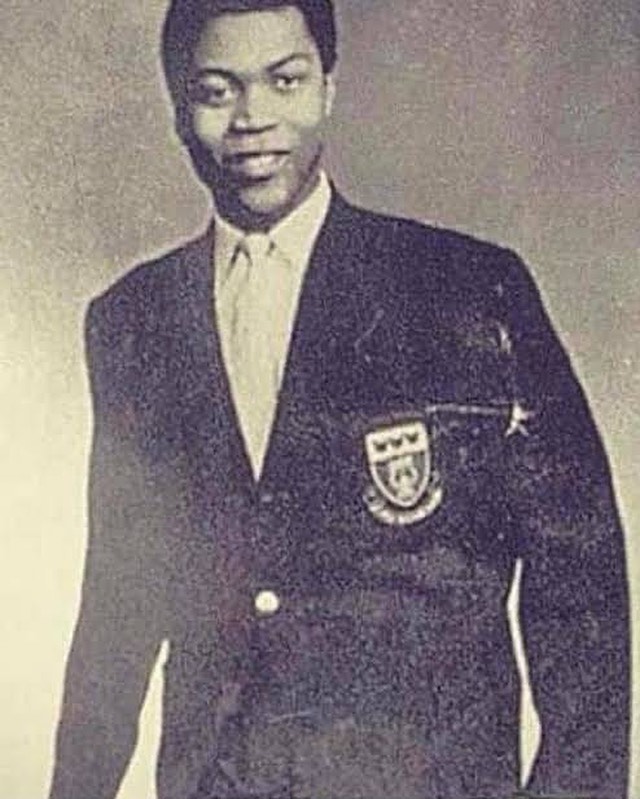Alhaji Adelabu a.k.a Penkelemesi Dies in a Car Crash with Two Others
Alhaji Adelabu passed away suddenly, and the Minister of Finance, Chief Festus Okotie-Eboh, made the announcement in Lagos. Became known as “The Lion of the West” Adegoke Gbadamosi Adelabu, also known as “Penkelemesi” or “Peculiar Mess” and “Lion of the West,” lived from 1915 to 1958. Politician, writer, and orator. He was raised in Oke-Oluokun, Ibadan, and went to the esteemed Government College Ibadan (GCI) in addition to the CMS Schools in Kudeti and Mapo. He had an unmatched academic record at GCI, one that was exceptional. He completed his studies at Yaba Higher College quickly as well. He became the first African manager when he joined the UAC after graduating. He and Adisa Akintoye co-founded the Ibadan Peoples Party in 1951. He was a fearless, powerful, and charismatic politician. Later on, he joined Zik’s NCNC and rose to the position of Leader of the Opposition in the Assembly for the Western Region. He passed away tragically on Tuesday, March 25, 1958, in an accident involving his Oldsmobile Rocket on the Lagos-Ibadan Road. At the young age of 42, he had 12 wives and 15 children.

